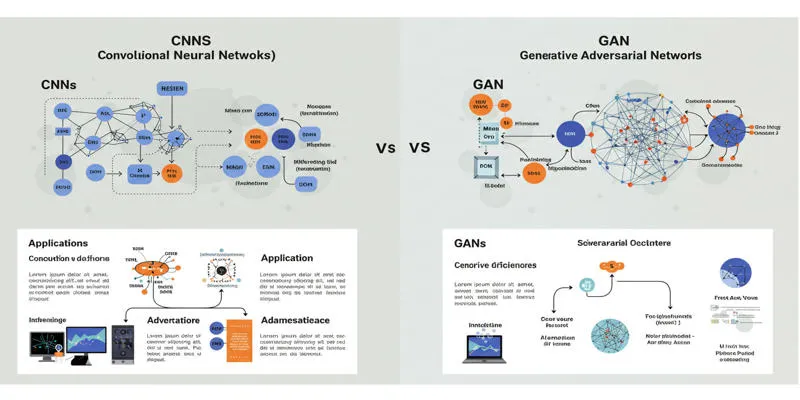Artificial Intelligence (AI) is revolutionizing consumer interactions within financial services. From enhancing customer support through chatbots to providing personalized financial advice, AI is making banking faster, smarter, and more efficient. It plays a critical role in fraud detection, automating processes, and improving user experiences, thereby reshaping the future of finance and making services more accessible and customer-friendly.
The Role of AI in Financial Services Consumer Interaction

AI is the backbone of improved connectivity between financial services companies and their customers. By analyzing vast amounts of data and employing machine learning algorithms, AI enables financial institutions to:
- Deliver hyper-personalized experiences.
- Resolve customer issues more quickly.
- Reduce operational costs while enhancing accuracy.
- Automate complex processes for greater efficiency.
Whether through AI-powered chatbots, robo-advisors, or predictive analytics, these technologies are fundamentally changing consumer perceptions and interactions with financial service providers.
Providing a Personalized Touch
The era of one-size-fits-all customer interactions is over. AI-driven tools analyze individual financial habits, past transactions, and behavior patterns to offer unique recommendations. Many banking apps use user spending data to generate budget recommendations and savings optimization suggestions, resulting in automated alerts for their customers. This personalized approach leads to higher satisfaction and long-term customer loyalty.
Real-Time Customer Support with Chatbots
AI is evident in financial services through chatbots, which serve as virtual assistants trained to efficiently resolve queries, from resetting passwords to explaining mortgage terms. Powered by Natural Language Processing (NLP) and Natural Language Understanding (NLU), bots like Bank of America’s Erica or Capital One’s Eno provide real-time answers to customer questions.
Applications of AI in Financial Services
The applications of AI in the financial sector are vast, covering multiple functions. Here are the key areas where AI is making a significant impact:
1. Fraud Detection and Prevention
Fraud is a major threat in financial services. AI technologies, such as machine learning, analyze transaction data to detect anomalies in real-time, flagging potential fraud before it occurs. For example, if a consumer in New York suddenly makes multiple high-value purchases in Tokyo, an AI system instantly flags the transactions for verification. By analyzing behavioral patterns, AI reduces false positives while maximizing fraud detection accuracy.
2. Robo-Advisors for Investment Guidance
For consumers exploring investments, AI-powered robo-advisors are invaluable resources. Platforms like Betterment, Wealthfront, and Charles Schwab provide users with affordable access to personalized investment strategies, tailored to their financial goals and risk tolerance. Robo-advisors analyze market trends, help rebalance portfolios, and optimize investment decisions based on algorithmic accuracy, democratizing financial planning once deemed inaccessible to those without significant wealth.
3. Predictive Analytics for Business Insights
Predictive analytics enables financial organizations to anticipate customer behavior and offer proactive services. For instance, a bank could use AI to identify customers likely to apply for a mortgage soon, enabling timely marketing campaigns or personalized outreach. Similarly, predictive maintenance uses AI algorithms to foresee IT system failures in real-time, ensuring seamless service delivery and reducing downtime.
4. Enhanced Loan Application Processes
AI simplifies the traditionally cumbersome loan approval process for lenders. By automating documentation and applying intelligent underwriting algorithms, loan decisions can be made in hours rather than days. AI solutions can instantly verify income, assess creditworthiness, and predict future repayment behavior, reducing the burden on both consumers and underwriters.
5. Building Financial Literacy
AI tools are also enhancing financial literacy. Personal finance apps like Mint and Cleo use AI to help consumers better understand their finances through spending breakdowns, savings recommendations, and real-time feedback on financial habits.
Benefits of AI in Consumer Interaction
Businesses leveraging AI gain competitive advantages in various ways:
- Improved Customer Experience : AI provides faster, more accurate, and personalized resolutions, leading to higher satisfaction rates.
- Cost Efficiency : Automation allows organizations to save significantly on labor and operational expenses.
- Enhanced Innovation : By making consumer data more actionable, businesses can innovate at an unprecedented pace.
- Scalability : AI systems can manage enormous workloads, handling increased consumer demand without compromising service quality.
Challenges in Implementing AI
While promising, AI adoption in financial services presents challenges:
- Data Privacy and Security : Balancing the use of consumer data for AI insights with compliance to regulatory frameworks like GDPR can be complex.
- Bias in Algorithms : If not carefully trained, AI systems may reflect biases in historical datasets, leading to inequitable outcomes.
- Resistance to Change : Integrating AI requires a cultural shift within organizations, which can be slow and met with resistance.
Addressing these concerns involves fostering transparency, regularly auditing AI tools for bias, and building robust cybersecurity measures.
The Future of AI in Financial Services

AI’s influence on consumer interaction in financial services is set to grow exponentially. With advances in emotional AI, future systems will empathize and adapt to individual emotions, offering even more human-like interactions. Additionally, the integration of blockchain technology with AI will further strengthen fraud detection and decentralization efforts.
To remain competitive, financial service providers must evolve with these technologies by investing in AI-powered tools and prioritizing consumer- centric innovation.
Conclusion
The integration of advanced technologies like AI and blockchain is not just reshaping the financial services industry but also laying the foundation for future growth and innovation. By embracing these advancements, organizations can enhance operational efficiency, improve customer experiences, and stay ahead in a competitive market. However, success hinges on the ability to adapt, invest wisely, and balance technological adoption with ethical considerations.
 zfn9
zfn9























